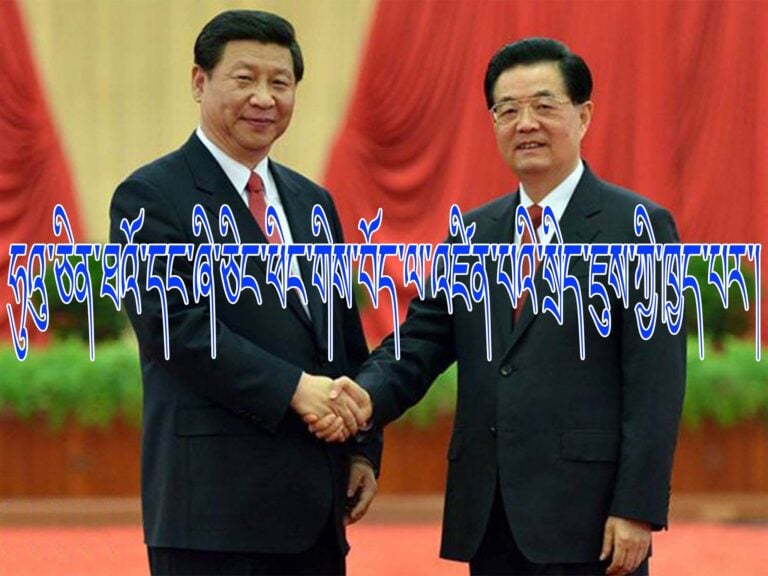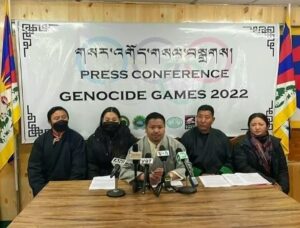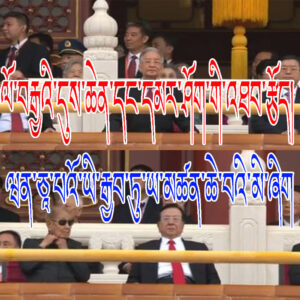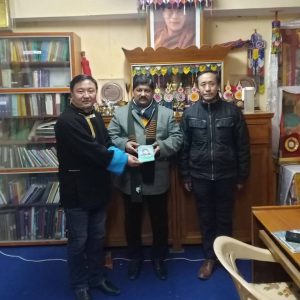It has been nine years since Xi Jinping took over as the President of the People’s Republic of China (PRC) as the succession of Hu Jintao. China is still governed by the one-party rule of the Chinese Communist Party (CCP). However, there have been significant differences between policies and administration by the two, especially concerning Tibet.
Hu Jin Tao has attended the Standing Committee of the Tibet Autonomous Regional People at the annual National People’s Congress. In total, he has attended twenty such meetings. This was a historic moment for the President of China to attend such meetings. On the contrary, Xi has participated in the meetings of the Standing Committee of the Tibet Autonomous only once. However, he has attended meetings of the People’s Liberation Army under the CCP Central Military Commission eight times. It is clearly evident from such active participation that Xi has admiration and aspiration for the military expansion of China. It should be noted that the highest number of dialogue between China and representatives of the Dalai Lama took place between 2002 and 2012 during Hu Jintao’s term as President. The number of Tibetans coming into exile in India was also one of the highest during this period. But, the Sino – Tibetan dialogue completely stopped since Xi came into power. The Tibetans coming into exile have taken a halt since then.
During Hu’s term as the president, the majority of the nine members of the Politburo standing committee are cliques of Jiang Zemin. This has resulted as a hurdle for Hu’s power and ultimately his implementation of policies. As for Xi, he has amassed power like Mao Zedong and ruled as a totalitarian regime.
Over the years of their administration, there have been opposing views regarding Tibet. During the 5th Tibet Work Forum, Hu has specified that the objective of the meeting is to create a plan for Tibet that has Communist characteristics with “Tibet’s special characteristics”. This policy was a completely new perspective of Tibet policy by China. The phrase “Tibet’s special characteristics” was not highlighted in the official press statement by the government, but it was analyzed by many governmental and non – governmental political analysts.
In 2013, Xi attended the Standing Committee of the Tibet Autonomous Regional People at the annual National People’s Congress for the first time. There, he emphasized that “nation-building begins with border protection and the border protection will only be fulfilled with peace in Tibet”. Xi’s Tibet policy became more evident during the 6th Tibet Work Forum as he brought major changes. Hu’s famed phrase, “Tibet’s special characteristics” vanished from official broadcasts and statements. Hu has emphasized the importance of traditional Tibetan language and printing press during the 5th Tibetan Work Forum which lasted for three days. However, during the 6th Tibet Work Forum chaired by Xi, this discussion was completely omitted. The meeting lasted only two days.
Yu Zhengsheng, 8th Chairman of the National Committee of the Chinese People’s Political Consultative Conference (CPPCC) his address of the annual report in 2017 has mentioned “ethnic minority” 10 times. Whereas, Wang Yang, 9th Chairman of the National Committee of the Chinese People’s Political Consultative Conference (CPPCC) has mentioned “ethnic minority” only once in his annual report in 2019. The status of ethnic minorities has thus deteriorated over time.
At the 2008 National People’s Congress, sixth Premier Wen Jiabao has mentioned “democracy” 22 times. He has also mentioned “democratic elections” and “democratic rule of law”. However, in 2019 National People’s Congress, seventh Premier Li Keqiang has mentioned “democracy” only 5 times. There was no mention of “democratic elections” and “democratic rule of law”. On the contrary, he has mentioned “Xi Jinping” 13 times and glorifying praises of Xi were numerous. Hu has mentioned “democracy” in his annual report at the 18th National Congress of the Chinese Communist Party in 2012. The mention of “democracy” has reduced to 54 times in Xi’s annual report on the 19th National Congress of the Chinese Communist Party in 2017.
Translated from Tibetan.




